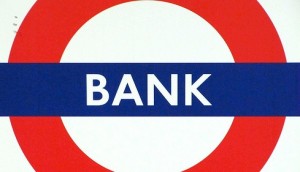Posted on 11 April 2011. Tags: brinkmanship, budget deal, friday night, loans, mortgages, obama, outbreak, owned properties, small business, vote
 President Obama and the congressional leaders agreed on a budget deal and short term funding extension on Friday night. The deal, which was agreed an hour before the given deadline at midnight, prevents the shutdown of the federal government.
President Obama and the congressional leaders agreed on a budget deal and short term funding extension on Friday night. The deal, which was agreed an hour before the given deadline at midnight, prevents the shutdown of the federal government.
The budget deal will keep the government funded until April 15. The deal calls for $38.5 billion in spending cuts. The vote to extend the funding immediately passed on the Senate on Friday, as well as on the House of Representatives early Saturday.
President Obama signed the short-term extension on Saturday. He said in his weekly address on Saturday that the deal will allow small business to get the loans that they need, families can get the mortgages that they have applied for, and thousands of working Americans can get their paychecks on time.
Obama said the the agreement was the biggest spending cut in the history. However, it is also a deal that will serve as the country’s investment for the future.
The government shutdown might have closed a lot of public-owned properties in the United States, including parks, tax season-help lines and other popular services that are managed by the government.
The deal finally came together after six tough weeks along with the outbreak of budget brinkmanship. The House is expected to consider the budget deal on Monday while a vote is scheduled for Wednesday. The Senate will consider the bill some time after the scheduled votes, spokesman of Senate Majority Leader from Harry Reid’s office, Jon Summers said.
Posted in Nation and World
Posted on 22 November 2010. Tags: banks, borrowers, business firms, dodd, industry profits, loans, profit margins, ratios, unintended consequence, year 2012
 Declining profits, as well as tighter profit margins will force the banks to close about 5,000 branches nationwide by the year 2012 according to a research note made by bank analyst Meredith Whitney on Monday.
Declining profits, as well as tighter profit margins will force the banks to close about 5,000 branches nationwide by the year 2012 according to a research note made by bank analyst Meredith Whitney on Monday.
Whitney Meredith, CEO of Meredith Whitney Advisory Group LLC, informed that the decreased desire of consumers and corporate firms to borrow, along with the new bank regulations, have permanently changed the key source of industry profits.
As a result, banks might be pushed to close some of their branches. There were about 83,320 US commercial bank branches recorded at the end of last year.
Average loan-to deposit ratios of banks have significantly dropped to 78 percent, which is a 16-year low according to Whitney. This is already a sign that both consumers and business firms have dropped their desire for borrowing.
Banks would be unable to earn money from the interests they charge to borrowers if there are fewer new loans. Also, they would be unable to pay out for the deposits.
In addition, Whitney said that the Dodd-Frank Act will limit fee income, which has accounted for about 44 percent of banks total net revenues.
According to Whitney, they believe that the most regrettable and unintended consequence of the hastily written regulatory reform will be the unavoidable ‘de-banking’ of the financial system in the United States. Whitney projects 41 million households in U.S will not have access to banking services, which will be an increase from 30 million households in 2009.
Posted in Finance
 President Obama and the congressional leaders agreed on a budget deal and short term funding extension on Friday night. The deal, which was agreed an hour before the given deadline at midnight, prevents the shutdown of the federal government.
President Obama and the congressional leaders agreed on a budget deal and short term funding extension on Friday night. The deal, which was agreed an hour before the given deadline at midnight, prevents the shutdown of the federal government.
 Declining profits, as well as tighter profit margins will force the banks to close about 5,000 branches nationwide by the year 2012 according to a research note made by bank analyst Meredith Whitney on Monday.
Declining profits, as well as tighter profit margins will force the banks to close about 5,000 branches nationwide by the year 2012 according to a research note made by bank analyst Meredith Whitney on Monday.